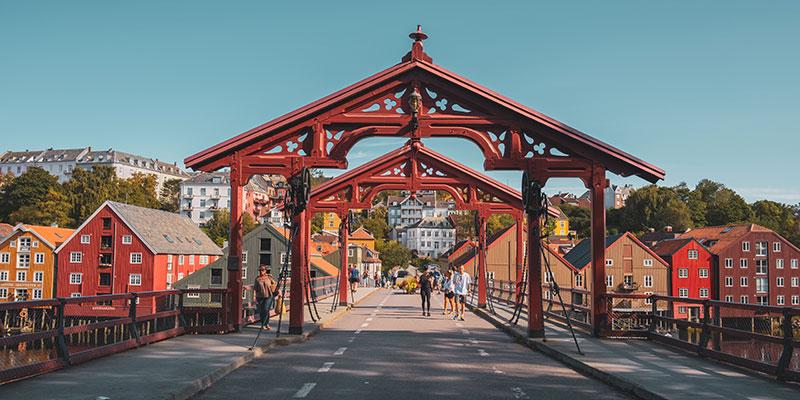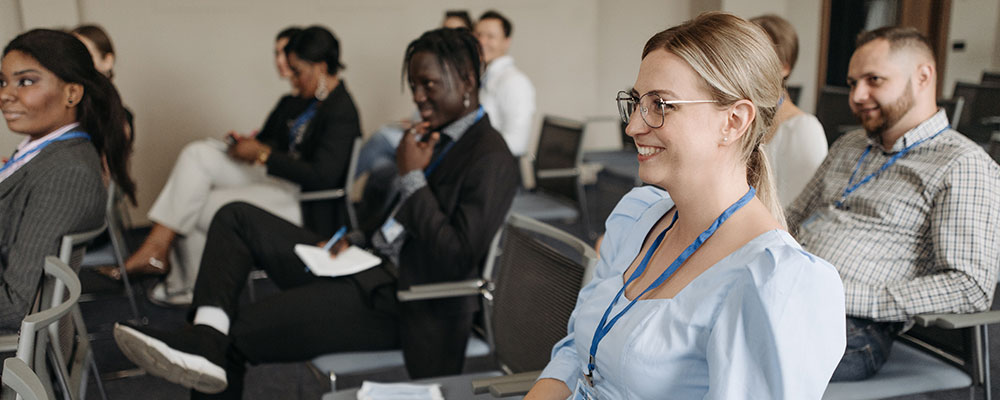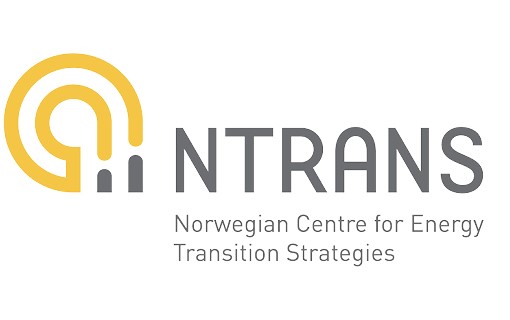NTNU Energy Team Society Conference
Beyond crisis/Beyond normal
A social science and humanities conference on sustainability
Organized by NTNU Energy Team Society
27 and 28 September 2023 | DIGS (pdf), Trondheim |
Registration deadline: 15 August

Beyond crisis/Beyond normal will be an essential meeting place for Social Sciences and Humanities scholars broadly working under the umbrella of sustainability.
The conference will explore aspects of sustainability across everyday life, politics, technology, art, and innovation through a broad range of disciplinary and cross-disciplinary perspectives.
This conference is relevant for researchers from Social Sciences and Humanities, and for other researchers and stakeholders interested in exploring what the social sciences and humanities can offer to debates about this topic.
Are you arriving in Trondheim early and want to make the most of your stay?
Then please join the open session of ENCHANT project’s final conference, 14:00-17:00 on the 26th of September at the conference venue (DIGS).
ENCHANT - Energy efficient through behaviour change transition strategies
Important dates
15. March 2023
Deadline for abstracts
15. August 2023
Deadline for registration
27. - 28. September 2023
Conference
Registration
The registration is now closed.
Registration fees
Regular participation (incl. lunches):
Early registration, deadline 15. June: 1300 NOK
Late registration, deadline 15. August: 2000 NOK
Students (master): 400 NOK
Conference dinner: 200 NOK
Fees include VAT.
Practical information
Venue
Venue
The conference will be held at DIGS (pdf), Krambugata 2, in the centre of Trondheim.
Trondheim
Trondheim
Trondheim is the historic capital of Norway with a history going back more than 1000 years. Today, the third largest city in Norway is heavily influenced by the presence of the Norwegian University of Science and Technology (NTNU), hosting around 40,000 students.
The city mixes a medieval history with being a site of technology development and innovation and is currently undergoing a range of developments which makes it an interesting site for scholars interested in transitions. It has also undergone somewhat of a culinary revolution and is currently hosting several Michelin star restaurants.
The city center is compact, and the remainder of the city, including large natural reserves is easily accessible through a modern metro bus system.

Travel information
Travel information
By train and bus
Check out VY’s website for options that will take you directly to the city centre of Trondheim, minutes from the conference venue.
There is even a night train from Oslo to Trondheim. It takes only 10 minutes to walk from Trondheim central station to the conference venue DIGS.
By plane
While we recommend green travel by bus or train to Trondheim, we realize that the city lies far from the high-speed rail network of mainland Europe. Trondheim is accessible by plane from central European hubs such as Amsterdam, Berlin or Copenhagen.
Once at Værnes airport you can get to the city centre either by train or you can take the airport express bus.
Public transport in Trondheim
If you are planning to stay for more than the conference duration, you might consider buying a weekly transport card on atb.no. All transport in zone A is included and that applies to airport trains, too.
Trondheim is a bike–friendly town. Trondheim City Bike weekly subscription costs 149 NOK per week.
Accommodation
Accommodation
The conference venue is conveniently placed in the city centre of Trondheim. Participants are asked to book their own accommodation.
You can find information about inner city hotels and sustainable accommodation here:
Hotels Inner City
Smart & Sustainable Development
For vegan or local food in Trondheim, check out the following websites:
About the conference
We live in times characterized by environmental, social, and economic turmoil. The global temperature is rising, while the loss of biodiversity is accelerating. Social, economic, and spatial inequalities are increasing, and socio-political polarization makes compromises across diverse interests difficult.
As words like “shifts”, “transitions” or “transformations” are increasingly becoming household concepts in mainstream policy making, the social sciences and humanities (SSH) can and should play a pivotal role both in making sense of the conditions that we live under, and in formulating ways forward for contemporary societies.
Beyond crisis/Beyond normal will be an essential meeting place for SSH scholars broadly working under the umbrella of sustainability. The conference comes at a crucial juncture for contemporary societies. On the one hand, immediate crises and war color key debates. On the other hand, one must re-think what new normals we might produce on the other side of these crises.
The conference recognizes the need to move beyond mere technological solutionism, to fundamentally probe what it could mean to live in just and sustainable societies and how these can be achieved. This entails grappling with difficult questions such as how societies should be organized, why it is so difficult to break out of extractive fossil fueled capitalism, how to deal with and make sense of controversies and trade-offs, as well as probing what justice might entail.
The conference will explore aspects of sustainability across everyday life, politics, technology, art, and innovation through a broad range of disciplinary and cross-disciplinary perspectives. The conference seeks to enable new academic conversations, strengthen ties between SSH communities, and increase the collective impact of SSH research, perspectives, and conversations on broader societal developments.






